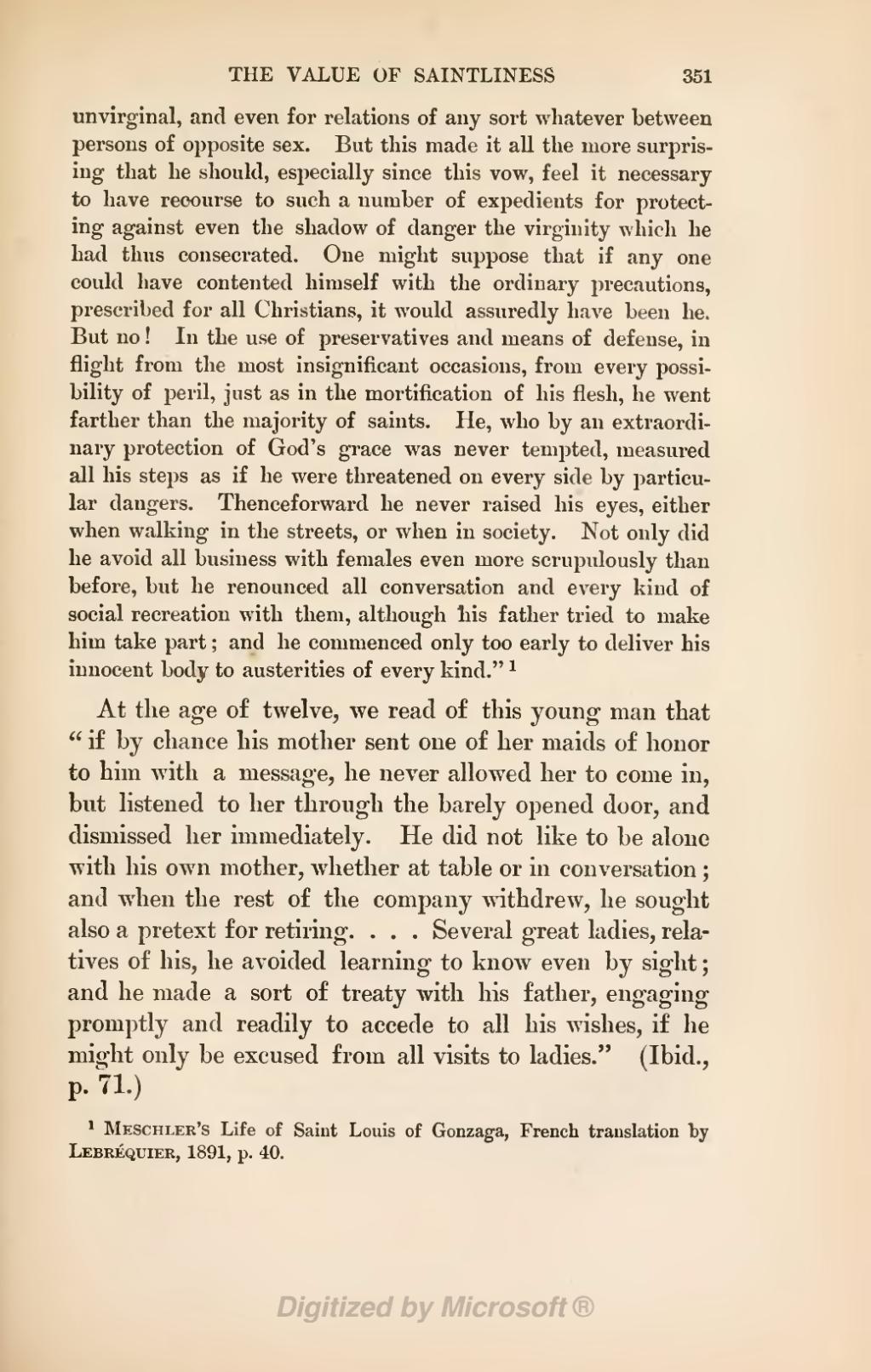unvirginal, and even for relations of any sort whatever between persons of opposite sex. But this made it all the more surprising that he should, especially since this vow, feel it necessary to have recourse to such a number of expedients for protecting against even the shadow of danger the virginity which he had thus consecrated. One might suppose that if any one could have contented himself with the ordinary precautions, prescribed for all Christians, it would assuredly have been he. But no! In the use of preservatives and means of defense, in flight from the most insignificant occasions, from every possibility of peril, just as in the mortification of his flesh, he went farther than the majority of saints. He, who by an extraordinary protection of God's grace was never tempted, measured all his steps as if he were threatened on every side by particular dangers. Thenceforward he never raised his eyes, either when walking in the streets, or when in society. Not only did he avoid all business with females even more scrupulously than before, but he renounced all conversation and every kind of social recreation with them, although his father tried to make him take part; and he commenced only too early to deliver his innocent body to austerities of every kind."[1]
At the age of twelve, we read of this young man that "if by chance his mother sent one of her maids of honor to him with a message, he never allowed her to come in, but listened to her through the barely opened door, and dismissed her immediately. He did not like to be alone with his own mother, whether at table or in conversation; and when the rest of the company withdrew, he sought also a pretext for retiring. … Several great ladies, relatives of his, he avoided learning to know even by sight; and he made a sort of treaty with his father, engaging promptly and readily to accede to all his wishes, if he might only be excused from all visits to ladies." (Ibid., p. 71.)
- ↑ Meschler's Life of Saint Louis of Gonzaga, French translation by Lebréquier, 1891, p. 40.
